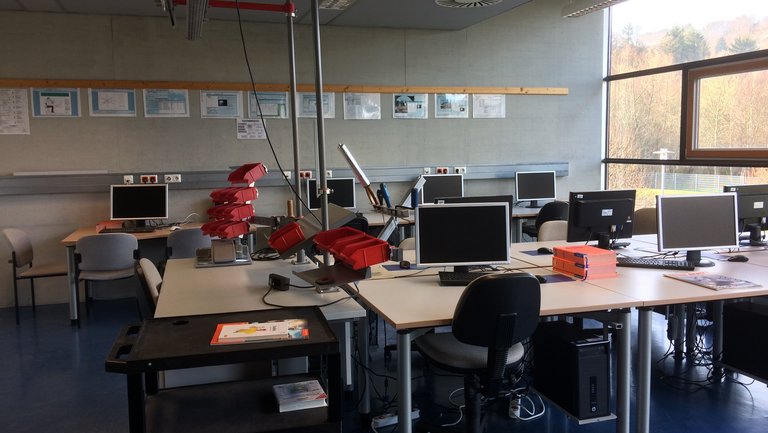Field Robot Event
Field Robot Event 2025
The Field Robot Event, supported by the CLAAS Foundation, is an international competition that brings together university teams to design and test autonomous agricultural robots. The CLAAS Foundation offers up to €1,500 in seed funding per team to support the development of these innovative robots. This initiative fosters innovation in agricultural robotics and provides students with a platform to apply their engineering skills in real-world scenarios.
Team of Masters students have been taking part in this event since 2023. The Field Robot Event 2023, held from June 12 to 15 in Hoče, Slovenia, at the University of Maribor, showcased the innovative capabilities of university teams in agricultural robotics. Participants competed in five distinct tasks designed to test various aspects of autonomous field robot performance: fieldrobot.nl+3claas-stiftung.de+3claas-stiftung.com+3
- Basic Navigation: Robots autonomously navigated through maize rows, aiming to cover the maximum distance within three minutes. This task emphasized accuracy, smoothness, and speed in navigation operations between rows.
- Advanced Navigation: This task involved navigating through straight maize rows with intentional gaps, requiring robots to follow a given track pattern. The objective was to maximize the distance traveled within a set time frame, testing the robots' ability to handle irregularities in the field.
- Obstacle Recognition: Stationary robots were presented with images depicting a deer, a human, or an unknown object. Each robot had five seconds to classify the image and indicate its detection through acoustic or visual signals. This task assessed the robots' object recognition capabilities.
- Sensing and Mapping: Robots were tasked with detecting and georeferencing weeds and objects within a maize field. The goal was to create accurate maps of the field, identifying the locations of unwanted elements.
- Freestyle: Teams had the opportunity to showcase unique features or applications of their robots beyond the standard tasks. This open-ended category encouraged creativity and innovation, allowing teams to demonstrate additional functionalities or novel approaches to agricultural challenges.
The Field Robot Event 2024 took place from June 11 to 13 at Gut Brockhof in Erwitte, Germany, as part of the DLG Feldtage exhibition. This annual competition brought together international student teams from countries including Norway, Italy, Slovenia, the Netherlands, and Germany to showcase their autonomous field robots in a series of challenging agricultural tasks.
Over the three-day event, teams competed in five distinct tasks designed to test various aspects of robotic performance in agricultural settings:
- Basic Navigation: Robots autonomously navigated through curved maize rows, aiming to cover the maximum distance within three minutes. This task emphasized accuracy, smoothness, and speed in navigation operations between rows.
- Advanced Navigation: This task involved navigating through straight maize rows with intentional gaps, requiring robots to follow a given track pattern. The objective was to maximize the distance traveled within a set time frame, testing the robots' ability to handle irregularities in the field.
- Object Recognition and Counting: Robots were programmed to drive through the maize field and count the number of plants in each row. The results obtained by the robots had to be presented immediately after completing each row, assessing their object recognition capabilities.
- Weed Mapping and Treatment: In a grassland area, robots identified and mapped weeds in the morning session. In the afternoon, they returned to locate the previously mapped weeds and implement crop protection measures, testing their ability to perform targeted interventions.
- Freestyle: Teams had the opportunity to showcase unique features or applications of their robots beyond the standard tasks. This open-ended category encouraged creativity and innovation, allowing teams to demonstrate additional functionalities or novel approaches to agricultural challenges.
The event was organized by Osnabrück University of Applied Sciences, Technische Hochschule Ostwestfalen-Lippe, and Agrotech Valley, in cooperation with the DLG (German Agricultural Society). Hochschule Schmalkalden built a completely inhouse robot for this event and took part in all the tasks in FRE 2024.

